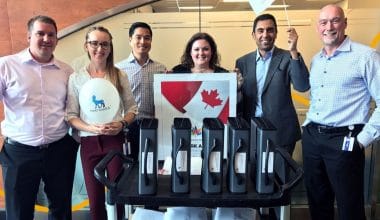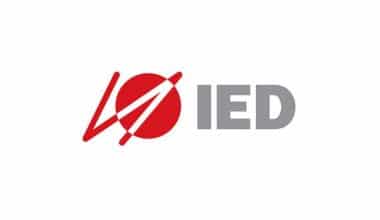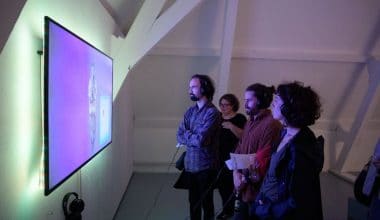Do you want to study at the University of Oslo? Then you should be acquainted with great information about Admission, Ranking, Scholarships, Courses & Tuition Fees.
The University of Oslo which was established on the 2nd day of September 1811 was popularly known as the Royal Frederick University. This was until the year 1939 when its name officially changed.
This University which is located in Oslo, Norway was the largest university by land area but however, it has been surpassed and is playing a secondary role to the Norwegian Institute of Science.
A brief history of the University incites us that one core reason for its creation was to encourage political separatist tendencies as Norway sought Independence from Sweden at that time.
The original reason for its creation was to train men and women who will go on to become government ministers and representatives of the parliament.
Table of contents
- University Ranking
- University of Oslo Admission Process
- Admission to Norwegian for Academics (NORA)
- · Getting your application results
- University of Oslo Scholarship Opportunities
- University of Oslo Scholarship criteria
- Who cannot, on a general basis, be eligible to apply for scholarships?
- University of Oslo Notable Alumni
- Conclusion
- Recommendations
University Ranking
The University of Oslo as of 2018 is currently ranked at no 142. This is a great fall compared to its 2016 ranking where it ranked 113.
The table below shows the process that determines the ranking of the University of Oslo.
Source: The Top Universities.
QS World University Ranking
Ranking Criteria
- Overall Score: 9
- Academic Reputation: 2
- Employer Reputation: 1
- Faculty Student: 9
- Citations per Faculty: 8
- International Faculty: 6
- International Students: 5
University of Oslo Admission Process
The admission rate for the University of Oslo is a little above 6% cumulative. The university offers admissions on programs such as;
- Bachelor program.
- Master’s program
- D. program.
- Exchange programs and bilateral agreements.
- Single courses on bachelor levels.
- Norwegian for Academics (NORA).
- The international summer rate.
- Bachelor program: The bachelor program at the University of is a four-year course which involves a compulsory one-year Norwegian language learning course and a three-year bachelor’s program. This makes it a total of four years.
It is mandatory that you prove you are proficient in the Norwegian language before you can be offered admission into its program. So your application letter should be able to prove your proficiency.
- Master’s program: The admission into the master’s program is conditional. The application processes are based on the citizenry and continental basis. They are;
- Application procedure for Nordic citizens and residents of Norway.
- Application procedure for the EU/EEA/Swiss applicants.
- Application procedure for non-EU students
- Application procedure for Nordic citizens and residents of Norway: The application for this program starts from the 1st of February while the deadline is the 15th day of April. This, however, is not the same for those who plan to master in Health Economics and Management.
- Application procedure for the EU/EEA/Swiss applicants: The application portal for the first phase of this project which starts in January opens on the 15th day of September and closes on the 15th day of October. The second phase which starts in August opens up on the 1st day of February and closes on the 1st day of March.
- Application procedure for non-EU students: The admission is annual. The portal opens 1st October and closes 1st The programs begin in the month of August.
The qualification for this program includes;
- You must meet the academic requirements. As you scroll down, you will have access to all the programs that are available to you. You’re able to apply for three prioritized programs.
- You must meet the English requirements. You have to take an English test if you are not proficient in the language. IELTS and TOEFL take such tests and you need to possess a document that proves your proficiency.
- Prepare your application. Possess all the required documents and put them in a pdf. Format. You can have your results imported from other Norwegian institutions and established on the portal.
- Complete your relevant courses in the application semester. Make sure you have completed every degree course. This is necessary to keep your admission valid.
- Register your application. Make sure you have it registered before the deadline which is the 15th day of March so as to avoid your admission made null and void.
- Reprioritize alternatives. You can reprioritize your programmes. Some of your programs start July and the others November. However, if you’re offered admission for your first priority, you don’t get offered another admission again.
- Getting your application results. You will be notified through your e-mail on your admission status and a short deadline will be given for your response.
- Supplementary admission. When some places remain unfilled, admissions will be given to applicants that are on the waiting list. However, if you are offered a supplementary admission on a course that you gave higher priority in your application, you automatically lose the admission.
- D. programme: This is the highest level of education in the University of Oslo. Participation in this programme has a stipulated time period of three years out of which you will use two and half to write a thesis. To gain admission into a Ph.D. programme, you must meet the following requirements;
- Have a Master’s degree: You must have completed your Master’s programme and you also would possess a certificate that validates you.
- Funding: You must have the funding that will see you through the end of your programme. One of the best ways to get this funding is when you’re employed as a doctoral fellow.
- Doctoral research fellow: There are fellowships that offer temporary employment and also give leave when you’re in a Ph.D. program. However, to get a job there requires that you apply for an advertised position.
- External funding: In the University of Oslo, those enrolled in Ph.D. programs don’t have a student’s status and there is no tuition fee for their programs. However, the student is open to external funding which must cover living expenses and the cost of research. This funding can never come from the Norwegian State Educational Loan Fund or to regular student accommodation.
- Exchange programs and bilateral agreements: The University of Oslo engages in exchange programs in over 500 universities where its students go to other institutions and study for one or two semesters.
To apply for this admission into an exchange program, Exchange students must be nominated in UiO’s nomination service by their home university. The deadlines are 1st May for the autumn semester and 1st November for the spring semester.
There are over 800 courses that are taught in English in the exchange program. The course descriptions give very detailed information about each course, the course contents, when and where it’s taught, the syllabus, and the examination form.
Bilateral students at the University of Oslo can make a choice to apply for Norwegian Language Courses both on the foundational and advanced levels.
Norwegian Language Courses are taught at the Department of Linguistics and Scandinavian Studies. The credit value of these courses can be incorporated into a degree if the courses are recognized by your native institution.
Intensive Norwegian Language Courses are offered in the summer through the International Summer School (ISS) at the University of Oslo.
There will be a free online introductory course to the Norwegian language.
You will need to get a residence permit for this program and since residence permits take time to process, it’s wise that you start the process two months before the due date. However, if you do not succeed, as a bilateral or exchange student, you will be given an option to get your permit seven days into your program. Non-EU/EEA students also need to get their visas ready as they are in the process of getting their residence permits. The residence permit doesn’t apply for EU students who will need to just register with the police if they are going to stay for more than three months. Norwegian students just need to renew their residence permits.
Student housing must be booked before the start of the program. This is to make it easier for the student to get a very comfortable place in one of the student houses. Only students who diligently follow the process, get access to housing. The students on an exchange program must arrive two days earlier so as to be part of the orientation program.
- Single courses on Bachelor Level: There can be a range of courses on bachelor level which are available for the student to undertake but first the student will need to fulfill the academic requirements.
- The applicant must submit all documents of Higher education entrance qualifications including English and Norwegian proficiency. You must have them validated by institutes that teach these courses such as TOEFL, IELTS, etc.
- There are some courses which have special arrangements that are not conventional and these courses are in Informatics and Mathematics and Natural Sciences.
- You must meet the Norwegian language requirement for this program.
The admission process for these courses starts with;
- Registering your application: Norwegian and Nordic citizens and applicants residing in Norway and the Nordic countries can also apply for single courses at the Faculty of Mathematics and Natural Sciences which are offered in English on Master’s level.
You apply using the online application system Søknadsweb. For those studies that fall into the autumn semester of 2018, Søknadsweb is open for applications starting from 15 June.
Please note that English proficiency is a strong requirement that will be strictly enforced for admission.
You may have restricted admission in some of the Natural Sciences courses, a required sequence of courses, or a required previous knowledge.
The University of Oslo will require original documents so you should get all your original documents ready as much as you have the photocopied ones.
- Registering for courses and semester fee payment: The faculty will contact and assist you with every registration for all the courses. After you must have finished this, you may then register for vacant courses on Student Web starting from 21st August 2024.
The deadline for registration is 1st September 2024.
You will have to pay the semester fee and copy fee by 1 September 2018. Students who wish to continue in the program will find the payment information on the Student Web.
Admission to Norwegian for Academics (NORA)
The application portal for the first phase of this program which starts in August opens on April 15th and closes on the 1st day of June. For the second phase which starts in January, the application portal opens on the 1st day of October and closes on the 15th day of November.
For admission into NORA, you have to;
- Check if you meet our basic admission requirements
You must have to meet the basic admission requirements for higher education in Norway (minus Norwegian) which specifically includes English language requirements.
Some countries also have specific documentation requirements.
- Check who can apply?
If you come from a country outside the EU/EEA you are only allowed to apply for NORA courses if you already have a Norwegian personal number or a D number.
It is not possible to get a student visa for taking this course.
If your country is not under the EU/EEU and you do not have a Norwegian personal number or what is popularly known as D number now but are living in Norway legally and/or you know that you will definitely get a residence permit before the course starts, you can write us an email to the institution so as to explain your case. The e-mail address: nora-admin@iss.uio.no. You will be duly informed about the application process.
Determine your level
Read the course descriptions
If you still are uncertain of which level to take, write to nora-admin@iss.uio.no to ask for an online placement test.
On the basis of the results of the test, we can guide you to the course that would suit you best.
When applying for NORA0120: If you have never taken Norwegian Level I at a Norwegian university or college, nor Norskprøven level A2, you would then have to take a placement test.
When applying for NORA0130: If you have neither taken Norwegian Level II at a Norwegian university or college nor Norskprøven level B1, you have to take a placement test.
Check the course fee and how to pay
Read about how to pay the course fee.
Payment must be made in full – a payment plan is not possible. Please make sure that your budget can accommodate the course fees before you apply.
Make sure you understand the cancellation policy before applying.
Please note: Students at NORA-courses level I-III, will not be granted student loans by Lånekassen.
Apply online
During your online application, upload documentation in the University application portal “Søknadsweb”. You will find NORA under “single courses/enkeltemner” after you must have logged in.
Source and get all the required documents, upload them in the Application Portal within the application deadline.
You will find instructions on how to upload your documents here.
Every applicant that qualifies should submit a complete application by the deadline to guarantee admission.
Former or current NORA or University of Oslo students who have already uploaded documents online in the Application Portal:
One more thing is required and that is you still need to make the choice of a course in the Application Portal and if you can still see your documents there, you do not need to upload any documents again.
Application period
The admission period for the first phase that runs in autumn 2018 is closed.
The admission period for the second phase runs in spring 2019: October 1 to November 15, 2018.
· Getting your application results
A stipulated period of at least one month is given after which applicants can expect an answer relating to the application that they submitted.
Complete payment acts as a security to your admissions.
Accommodation: We cannot arrange accommodation for NORA students, and the University of Oslo offers no housing guarantee for NORA students. NORA students are given the leeway to apply for student housing through SiO, but since the demand is skyrocketing, this is a very risky option if you don’t have a backup plan.
- The International Summer School
The International summer school has a simple demand. It demands that you meet the academic and English requirements to gain admission into the institution. You need to go to the university portal and apply for the program.
- University of Oslo Tuition fees
University of Oslo all we all know is a public university. Therefore at the University of Oslo, there is no tuition fee. Instead, there is a sum amounting to NOK 600 (74 USD) which is paid by every student. Does this mean that other expenses are covered? No. You the student will still have to foot the bill of your living expenses and other necessary costs.
The student can take up a job that will enable him to meet up with these expenses. This is dependent however if the visa that the student has will avail him the opportunity to take up a job.
However, Ph.D. students at the University can get access to funds when they take up temporary employment in the fellowships.
- University of Oslo Faculties
There are eight faculties in the University of Oslo that run many courses under them. These faculties are the powerhouse for the courses which have been used to train exceptional and quality graduates that are making tremendous discoveries and inventions all over the world. The faculties are;
- Theology and Religion.
- Mathematics and natural sciences.
- Social sciences.
- Theology and Religion: This faculty seeks to train the student on the core truths about religion and theology. The faculty offers nine-course to its bachelor level students which are;
| RESA3201 – Bachelor Thesis: Religion and Politics in Europe RESA3500 – Religion, Theology and Social Media TFF3210 – Coptic and Greek Hagiographical Texts TFF3240 – Ritual, Pilgrimage and Environmentalism TFF3250 – Media and Message TFF3280 – Coptic TFF3400 – Mary – From Maiden to Madonna TFF3500 – Queering Religions in a Western Context | 20 |
| 10 | |
| 10 | |
| 10 | |
| 10 | |
| 10 | |
| 10 | |
It also offers 21 courses to its Master’s students which are:
| CONT4602 – Master Thesis in Intercontextual Theology DIAK4223 – Citizenship KRIS4104 – New Testament Theology REDI4000 – Interreligious relations: Defining Moments, Current Encounters REDI4001 – Religion, Migration and Citizenship REDI4002 – Sacred Scriptures and their Complex Receptions REDI4302 – Master Thesis RESA4102 – Theory and Method in the Study of Religion, Society and Diversity RESA4214 – Religion and Politics in Europe RESA4216 – Jews and Judaism in Scandinavia RESA4220 – Islam, Gender and Sexuality RESA4500 – Religion, Theology and Social Media RRE4204 – Comparative Ritual: Jewish, Christian and Muslim worship RRE4205 – The three religions in contemporary perspective RRE4210 – Hagiographical text, Greek and Coptic RRE4302 – Master Thesis in Religious Roots of Europe TFF4003 – Space, Art and Identity in Synagogue, Church and Mosque TFF4250 – Media and Message TFF4260 – Youth Ministry, Glocality and Ecclesiology TFF4400 – Mary – From Maiden to Madonna TFF4500 – Queering religions in a Western context | 60 |
| 10 | |
| 10 | |
| 10 | |
| 10 | |
| 10 | |
| 60 | |
| 10 | |
| 10 | |
| 10 | |
| 10 | |
| 10 | |
| 10 | |
| 10 | |
| 10 | |
| 40 | |
| 10 | |
| 10 | |
| 10 | |
| 10 | |
| 10 |
In all its programs, this faculty offers 30 courses to its students.
- Law: The faculty still defiant in its aim to train exceptional lawyers in all platforms and sectors. The University of Oslo runs three topics for its faculty of Law which are;
- Criminology and the Sociology of Law.
- Human Rights.
- Law courses.
- Criminology and the Sociology of Law: This particular topic offers 11 courses to its bachelor degree students which are;
| KRIM2951 – Comparative Justice KRIM2952 – A Criminology of Globalization KRIM2953 – Criminological Perspectives on Gender, Sexuality and Violence KRIM2954 – Cultural and Narrative Criminology KRIM2956 – International Criminal Justice and Mass Violence KRIM2957 – Surveillance: Data, technologies, practices KRIM2960 – Green Criminology RSOS2950 – Torture, Surveillance and Rights RSOS2951 – Legal Mobilization and Grassroots Organizing for Social Justice RSOS2952 – Law, Ideology and Human Rights Violations RSOS2953 – Legal Anthropology | 10 |
| 10 | |
| 10 | |
| 10 | |
| 10 | |
| 10 | |
| 10 | |
| 10 | |
| 10 | |
| 10 | |
The Master’s programme includes all the courses above with the addition of one more course called Media and Crime.
- Human Rights: Human rights under the faculty of Law offers courses only to its Master’s students. It offers 14 courses in total. These courses are;
| HUMR4504 – Human Rights in Practice HUMR4510 – Human rights, Politics, and Legitimacy HUMR5131 – Human Rights in History, Philosophy and Politics HUMR5132 – Human Rights Law in Context HUMR5133 – Business and Human Rights HUMR5140 – Human rights in international and national law HUMR5145 – Human Rights in Asia HUMR5191 – Human Rights Methodology: Research, Analysis and Thesis HUMR5200 – Thesis in the Theory and Practice of Human Rights HUMR5502 – Dealing with Diversity: Human Rights Approaches to Ethnic Conflict HUMR5508 – Human Rights and Diversity – Leading Cases and Core Dilemmas HUMR5702 – Human Rights and Sustainable Development: Interdisciplinary Perspectives on Theory and Practices JUS5134 – The Right to Peace JUS5503 – Human Rights and Counter-Terrorism: Striking a Balance? | 10 |
| 10 | |
| 10 | |
| 10 | |
| 10 | |
| 10 | |
| 10 | |
| 10 | |
| 30 | |
| 10 | |
| 10 | |
| 10 | |
| 10 | |
- Law courses: The department/topic of law at the University of Oslo has 15 courses that it runs all semesters for its bachelor’s degree students. These courses are;
| JUR1230 – International Commercial Law (BA) JUR1240 – Comparative Private Law (BA) JUR1260 – English Law of Contract (BA) JUR1310 – EU Competition Law (BA) JUR1440 – EU Substantive Law (BA) JUR1450 – Marine Insurance JUR1530 – Refugee and Asylum Law (BA) JUR1560 – International Constitutional Law and Democracy (BA) JUR1630 – Privacy and Data Protection JUR1641 – Electronic Communications Law (BA) JUR1690 – Robot Regulation – BA JUR1710 – International Human Rights Law: Institutions and Procedures JUR1730 – International Humanitarian Law (The Law of Armed Conflict) JUR1880 – Financial Market Law and Regulation JUR1910 – Women’s Law and Human Rights (BA) | 10 |
| 10 | |
| 10 | |
| 10 | |
| 10 | |
| 10 | |
| 10 | |
| 10 | |
| 10 | |
| 10 | |
| 10 | |
| 10 | |
| 10 | |
| 10 | |
The Master’s students have 30 courses that are being offered by the Department of Law. They are;
| JUS5040 – Moot Court | 10 |
| JUS5134 – The Right to Peace | 10 |
| JUS5230 – International Commercial Law | 10 |
| JUS5240 – Comparative Private Law | 10 |
| JUS5260 – English Law of Contract | 10 |
| JUS5310 – EU Competition Law | 10 |
| JUS5401 – Maritime Law – Contracts | 10 |
| JUS5402 – Maritime Law: Liability and Insurance | 10 |
| JUS5405 – Law of the Sea | 10 |
| JUS5411 – Petroleum Law | 10 |
| JUS5440 – EU Substantive Law | 10 |
| JUS5450 – Marine Insurance | 10 |
| JUS5503 – Human Rights and Counter-Terrorism: Striking a Balance? | 10 |
| JUS5520 – International Environmental Law | 10 |
| JUS5530 – Refugee and Asylum Law | 10 |
| JUS5540 – Public International Law | 10 |
| JUS5560 – International Constitutional Law and Democracy | 10 |
| JUS5570 – International Criminal Law | 10 |
| JUS5630 – Privacy and Data Protection | 10 |
| JUS5641 – Electronic Communications Law | 10 |
| JUS5650 – Cyber security Regulation | 10 |
| JUS5660 – Intellectual Property Law in the Information Society | 10 |
| JUS5670 – Electronic Commerce Law | 10 |
| JUS5680 – Internet Governance | 10 |
| JUS5690 – Robot Regulation | 10 |
| JUS5710 – International Human Rights Law: Institutions and Procedures | 10 |
| JUS5730 – International Humanitarian Law (The Law of Armed Conflict) | 10 |
| JUS5831 – Environmental Law and Economics | 10 |
| JUS5850 – International Trade Law | 10 |
| JUS5851 – International Investment Law | 10 |
| JUS5852 – International Commercial Arbitration | 10 |
| JUS5870 – European Labour Law | 10 |
| JUS5880 – Financial Market Law and Regulation | 10 |
| JUS5910 – Women’s Law and Human Rights | 10 |
| JUS5911 – International Climate Change and Energy Law | 10 |
| JUS5912 – Legal Writing and Oral Advocacy in International Law | 10 |
| JUS5930 – Comparative Public Law | 10 |
| MARL5110 – Maritime law: Safety, Competition and EU | 10 |
| MARL5120 – Maritime Law in practice: Mock Trial | 10 |
| NSELP4002 – Upstream Oil and Gas: Public and Contractual Law Aspects |
Ph.D. students are only trained on one course;
JUR9020 – Internationalization, transnational Law, and Comparison.
- Medicine: The faculty of medicine in the University of Oslo houses four departments which are;
- Health Management and Health Economics
- International health
- Medicine
- Nutrition
- Health Management and Health Economics
This department only runs programs for its Master’s students. It has a total of 37 courses which it teaches. They are;
| HECON4000 – Basic Mathematics for Health Economists HECON4100 – Fundamentals of Health Economics HECON4210 – Demand for health and health insurance HECON4220 – Paying Providers of Health Care HECON4230 – Optimal regulation HECON4250 – Cost and efficiency analyses of health care providers HECON4260 – Need analyses, risk adjustments, and formula funding HEVAL4200 – Fundamentals of economic evaluation in health care HEVAL5110 – Valuing Health HEVAL5120 – Modelling in the economic evaluation I HEVAL5130 – Modelling in economic evaluation II HEVAL5140 – Methods for estimating the effects of interventions HEVAL5150 – Decision making under risk and uncertainty HEVAL5200 – Topics in economic evaluation HFIN4210 – Finance HFIN4220 – Investments HFIN4230 – Cost accounting HFIN4240 – Budgeting HGOV4100 – Fundamentals of Health Care Systems HGOV5200 – Topics in Health Policy HLAW4100 – Fundamentals of Health Law HMAN4100 – Fundamentals of management HMAN4210 – Leadership and management HMAN4220 – Health organization development and design HMAN4230 – Internship HMAN5140 – Topics in Priority Setting HMAN5150 – Management in practice (HR-management) HMAN5160 – Integrated Care Models HMAN5170 – Evidence-informed health policy HMAN5200 – Topics in Health Management HMED4100 – Fundamentals of medicine HMET4100 – Fundamentals of statistics HMET4210 – Research Design HMET5120 – Qualitative methods HMET5130 – Linear Regression Analyses HMET5140 – Non-parametric and alternative regression methods in statistics HMM4501 – Master thesis | 2 |
| 5 | |
| 5 | |
| 5 | |
| 5 | |
| 5 | |
| 5 | |
| 5 | |
| 5 | |
| 5 | |
| 10 | |
| 10 | |
| 5 | |
| 5 | |
| 5 | |
| 5 | |
| 5 | |
| 5 | |
| 5 | |
| 5 | |
| 5 | |
| 5 | |
| 5 | |
| 5 | |
| 5 | |
| 5 | |
| 5 | |
| 5 | |
| 10 | |
| 5 | |
| 5 | |
| 5 | |
| 5 | |
| 5 | |
| 5 | |
| 5 | |
| 30 |
- International Health
This department only offers Master’s programs to its students. There are 15 courses in this department which are;
| INTHE4006 – Literature Review and Research Question Seminar |
| INTHE4007 – Research Methodology |
| INTHE4008 – Research Ethics – introductory module in research ethics |
| INTHE4012 – Master Thesis |
| INTHE4013 – Fundamentals of International Community Health Part I |
| INTHE4014 – Fundamentals of International Community Health Part II |
| INTHE4016 – Qualitative Methodology |
| INTHE4017 – Quantitative Methodology |
| INTHE4113 – Introduction to Medical Anthropology: key concepts and perspectives |
| INTHE4114 – Epidemiology in practice – Methodology, examples and tools |
| INTHE4117 – New priorities for HIV and AIDS in the developing world context |
| INTHE4118 – Reproductive and Sexual Health and Human Rights |
| INTHE4119 – Evidence Informed Health Policy |
| INTHE4120 – Ethical issues in international health research – advanced module in research ethics |
| INTHE4121 – Water and food in a global health perspective |
Medicine
The department of medicine only runs programmes for its Master’s and Ph.D. students. It has a total of 33 courses for its Master’s students.
| MEDFL5010E – Introductory course to the medical PhD programme, INTRO I | |
| MEDFL5030E – Introductory course to the medical PhD program, INTRO II | |
| MEDFL5120 – Introduction to infectious disease modelling | |
| MEDFL5120BTS – Molecular medicine (national course) | |
| MEDFL5125 – Introductory course to cardiovascular research and medicine | |
| MEDFL5130E – Introductory course in statistics | |
| MEDFL5135 – Biomarkers for clinical research | |
| MEDFL5140 – Qualitative research methods | |
| MEDFL5150 – Essentials of Neurophysiology: from neurons to circuits to behaviours | |
| MEDFL5155 – Introduction to statistics and bioinformatics for the analysis of large-scale biological data | |
| MEDFL5170 – Flow cytometry in medical research and diagnostics | |
| MEDFL5185 – Critical perspectives on health and disease | |
| MEDFL5195 – OMICs in medical research | |
| MEDFL5215 – Life science, cell and animal research | |
| MEDFL5225 – A molecular approach to genetic and epigenetic gene regulation, from basic research to the clinic | |
| MEDFL5230 – Course on clinical, epidemiological and public health research | |
| MEDFL5250 – Methods in Cardiac Research | |
| MEDFL5265 – Community-Based Participatory Action Research | |
| MEDFL5270 – Quantitative biology, or mathematics is biology’s next microscope | |
| MEDFL5275 – Prediction (in Molecular Biology) | |
| MEDFL5285 – The Economics of Hospitals: Competition, Price Incentives, Non-profit status and Waiting Times | |
| MEDFL5295 – Global health | |
| MEDFL5320 – Medical history: sources, methods and historiographical questions | |
| MEDFL5325 – Register-based epidemiology | |
| MEDFL5335 – Modern methods for analyzing survival and time to event data | |
| MEDFL5345 – Neuroscience data integration through use of digital brain atlases | |
| MEDFL5355 – Reproductive and sexual health and rights in global health | |
| MEDFL5490 – Laboratory animal handling | |
| MEDFL5493 – CAREIN – Course In Animal Research In Norway | |
| MEDFL5510E – Logistic regression, survival analysis and Cox-regression | |
| MEDFL5555 – Analysis of repeated/correlated measurements | |
| MEDFL5570 – New statistical methods for causal inference | |
| MEDFL5580 – Epidemiological methods, beyond the basics |
Nutrition
The department of nutrition has 2 courses. These courses are taught throughout the semester.
The faculty of humanities has a bid to produce students of repute in the fields of religion, philosophy, history etc. The faculty of humanities has eight departments under its umbrella. They are;
- Culture, Religion, Asian Languages, Asian and African Studies
- European Languages, Literature, European and American Studies
- History, Archaeology and Conservation Studies
- Ibsen Studies
- Media and Communication
- Musicology
- Philosophy, History of Art and Ideas, Greek and Latin
- Scandinavian Studies, Celtic Studies, Linguistics, and Textual Sciences
- Mathematics and natural sciences
The faculty of Mathematics and natural sciences hearken unto a global perspective that connotes science at the heart of every development. Well, this is not far from the truth. There are ten departments under this faculty which are;
- Mathematics, Mechanics, Statistics.
- Technology Systems.
- Theoretical Astrophysics.
Dentistry
The faculty of dentistry from the University of Oslo is alone department. This faculty offers one course in its faculty.
The faculty has seven departments/topics that teach over 200 courses in its Bachelor and Post-Graduate Programmes. The seven topics are;
- Economics
- Political Science
- Psychology
- Social Anthropology
- Sociology and Human Geography
- Technology, Innovation and Culture
- Interdisciplinary courses
The faculty of education has three departments/topics under the faculty. These departments/topics train the students with 102 courses in its Bachelor and Post-Graduate Programmes. The three departments are;
University of Oslo Scholarship Opportunities
There are few scholarships available for students on bachelor’s degree programs or master’s degree programs.
Therefore, scholarships are only valid under programs such as Erasmus Mundus, Erasmus+, Nordplus, and the EEA Grants/Norway Grants program.
There are scholarship opportunities for ISS students and the competition for ISS’ scholarships is difficult and sponsorship/funding is highly limited. The ISS scholarships are only available to applicants that seek entrance to the International Summer School, not to applicants that have full degrees at the University of Oslo.
University of Oslo Scholarship criteria
To be successful in your ISS scholarship pursuit, you must demonstrate:
- That you meet the academic requirements
- Exceptional academic results
- Your application for a course is relevant to your background.
- Your professional background is important to the course you’re applying for.
Who cannot, on a general basis, be eligible to apply for scholarships?
- Medical professionals that are applying for Norwegian language courses
- Applicants that choose to ISSN0110 Intensive Elementary Norwegian, Level I
- Current and former University of Oslo students
- Citizens of a Nordic country
International Students
The University of Oslo’s international students like every other student is not required to pay fees. However, the student must fulfill all the requirements that are mandated after admission which includes paying the compulsory fee. The international student at the University of Oslo has access to scholarships too.
Research centers and other special units
There are
- Norwegian Centre for Violence and Traumatic Stress Studies (wholly owned by the university)
- Centre for International Climate and Environmental Research(a foundation affiliated with the university)
- The Biotechnology Centre of Oslo
- Centre for Gender Research
- Norwegian Institute in Rome (wholly owned by the university)
- Barony Rosendal (wholly owned by the university)
- Molecular Life Science
- International Summer School
Library
There are four libraries in the University of Oslo that house books and other academic materials. This is also the home of many research works. The libraries are;
- Library of Medicine and Health Sciences
- Library of Humanities and Social Sciences
- Faculty of Law Library
- Faculty of Mathematics and Natural Sciences Library
Museums
The University of Oslo has five museums that hold artefacts of history and also tale a documentary of the University’s history. These museums are;
- Mineralogical-geological Museum
- Paleontological Museum
- Zoological Museum
- Botanical Garden
- Botanical Museum
University of Oslo Notable Alumni
The University of Oslo has also produced an outstanding number of alumni that have served in different sectors of the nation and the globe. Some of these notable alumni are;
- Gro Harlem Brundtland – Former prime minister of Norway.
- Åse Kleveland – Norwegian singer and politician.
- Andreas Thorud – Footballer
- Thor Heyerdahl – Ethnographer and adventurer.
- Kåre Willoch – Former prime minister of Norway.
- Harrison Schmitt – Former American astronaut.
- Petrit Selimi – Deputy Minister of Foreign Affairs of Kosovo.
Conclusion
The University of Oslo ticks all the boxes when you’re searching for an affordable and widely renowned university in Oslo. It’s a desirable place to be in and I hope your pursuit is successful.
Recommendations
- 15 Esthetician Schools Online 2024: Courses, Schools & Certification
- How To Create A .edu Email Account For Free In 2024
- List Of 1 Year MBA Programs In USA 2024 | Admission, Requirements, Cost
- 4 Weeks Certificate Program That Will Pay You Well In 2024
- Top 15 Quick Certifications That Pay Well In 2024
DISCLOSURE: This post may contain affiliate links, meaning when you click the links and make a purchase, we receive a commission.






Comments are closed.